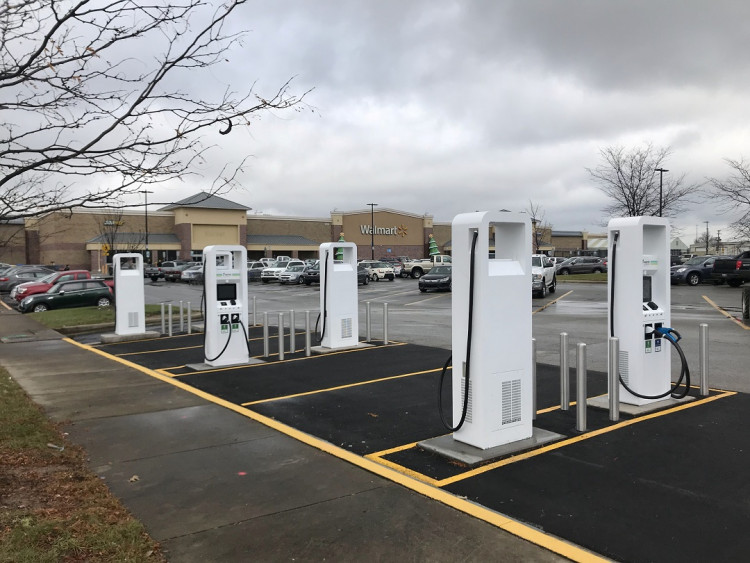Electric vehicle charging stations could become one of the next big targets for fraudsters - thanks to proposals in several states in the United States that researchers say would weaken their security.
If you've ever swiped your card somewhere and subsequently had your own information swiped, you know how big of a hassle it can be. That's why some researchers are warning the growing EV community away from adding simple magnetic card readers to EV chargers.
A new report from the Digital Citizens Alliance warns against installing credit card readers at public EV charging stations. In the report, DCA claims that adding magnetic swipers "would be a step backward from a consumer security standpoint because the readers are a frequent target of criminal enterprises and individual hackers."
Currently, many electric car charging stations accept online payments from a customer's smart phone, eliminating the need for physical payments.
However, several states such as California, Vermont, Arizona and Nevada, are considering mandating that electric car charging stations include magnetic strip readers for credit cards.
Stolen data from credit card readers costs Americans around $16 billion per year, according to the Digital Citizens Alliance.
The report advocated that mobile payment remain the main form of payment for charging stations, and that "legislators should engage with the security community to better understand fraud risks associated with credit card readers."
"The stakes have never been higher," the report authors said.
April Wright, a cybersecurity expert and one of the authors, described mandating credit card readers as putting drivers of electric cars "in the crosshairs of cyber criminals."
Where other nations, including the U.K. and most of Europe, have adopted chip-and-PIN as the primary way of paying for goods and services, the U.S. still relies on the insecure magnetic stripe. Hackers can easily skim the data off the credit card and repurpose a stolen magnetic stripe to commit fraud.
Although chip-and-PIN is more secure than the magnetic stripe, card fraud remains a risk until chip-and-PIN becomes the primary method for making payments. Even with chip-enabled cards, fraudsters can still steal payment card numbers and card verification codes by using hidden pinhole cameras.
"With a growing number of EVs [electric vehicles] on the road and dozens of new models hitting showrooms soon, the safety and security of EV charging stations should be paramount," Wright added.






